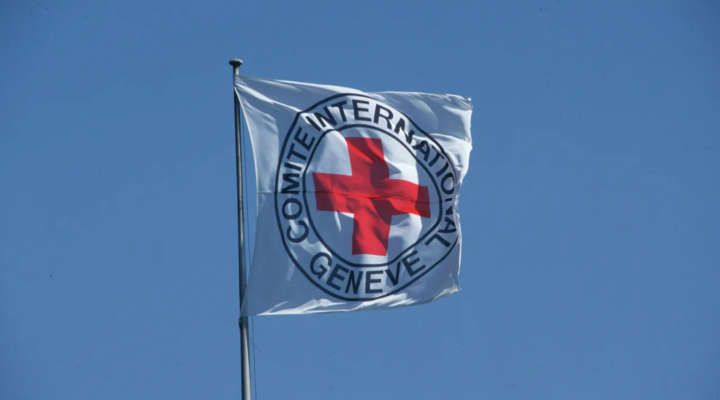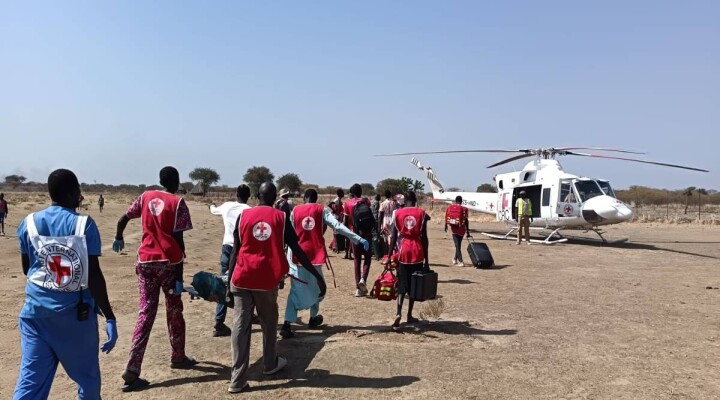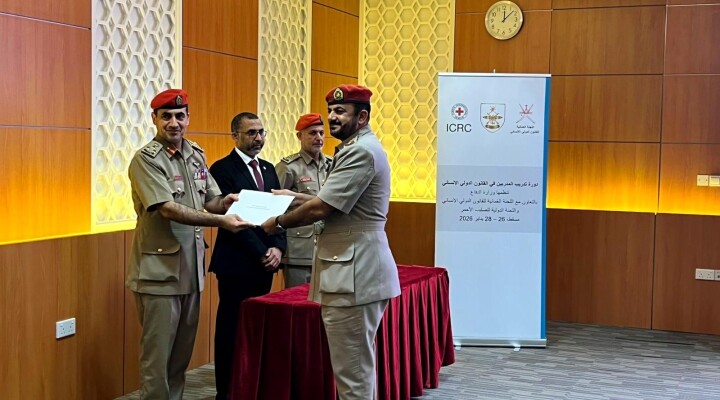South Sudan: Gunshot Injuries Remain High Despite Peace Deal
The number of patients admitted to International Committee of the Red Cross (ICRC)-supported hospitals in South Sudan with injuries from violence remains high ten months after the signing of a peace agreement.
“Although South Sudan is technically in a time of peace, the context is that there is a constant state of aggression between tribes and clans,” said Kieren Box, a surgical nurse at ICRC’s hospital in Ganyliel. “They’re fighting over cattle. They’re fighting over land. The youth fight amongst themselves and it’s very easy to get weapons here, so small disputes turn into really large disputes.”
As South Sudan marks eight years of independence, fighting has dropped between parties to the conflict. However, intercommunal violence—mostly linked to cattle raids and revenge killing—continues to threaten lives
There has been only a small drop-off in the number of injuries from gunshot and other weapons at two ICRC-supported facilities (comparing the same six-month period year-on-year) since the signing of the latest peace deal in September 2018. Ninety-seven percent of admitted patients over a recent six-month period suffered gunshot wounds, an indication of the high prevalence and easy access to fire arms.
Women and children remain particularly vulnerable; about 10 percent of patients seen from October 1, 2018 to March 31, 2019 were children under the age of 15, while just over 10 percent were women.
The ICRC transfers patients by air from around the country to two hospitals—one in Juba and another in Ganyliel—where teams provide surgical and post-operative care among other services. Many patients arrive with days-old injuries that have become infected.
“The past three days we’ve had the medevac come in, which was four patients—three quite ill patients, one not so bad,” said Box. “We’ve had a caesarean section on a young lady. The rains have come, so everything is very muddy and uncomfortable.”

Note on the numbers: From October 2017 to March 2018 there were 392 patients admitted to ICRC-supported medical facilities in Ganyliel and Juba with gunshot/weapon-related injuries. From April to September 2018 (the rainy season), there were 291 patients. From October 2018 to March 2019 there were 382 patients.
For further information, please contact:
Florian Seriex, ICRC Juba, +211 912 360 038
Crystal Wells, ICRC Nairobi, +254 716 897 265
Aurélie Lachant, ICRC Geneva, +41 79 244 64 05
SHOTLIST
Location: Ganyliel, South Sudan
Length: 02:02
ICRC ref: 20190704_SouthSudan_violence
Date: 25.05.2019
Format: HD 1920 x 1080 25fps
Copyright: ICRC access all
Location: Ganyliel, South Sudan
00.00-00.13: Patients are unloaded on stretchers from an ICRC helicopter and carried into ICRC’s field hospital in Ganyliel South Sudan
00.14-00.16: A patient is cared for in a hospital bed in a ward at ICRC’s hospital in Ganyliel
00:17-00:38: SOUNDBITE, Kieren Box, ICRC surgical nurse
The past three days we’ve had the medevac come in, which was four patients—three quite ill patients, one not so bad. We’ve had a cesarean section on a young lady. The rains have come, so everything is very muddy and uncomfortable.
00:39-01:00
ICRC medical team performs surgery
01:01-01:28: SOUNDBITE, Kieren Box, ICRC surgical nurse
Although South Sudan is technically in a time of peace, the context is that there is a constant state of aggression between tribes and clans. They’re fighting over cattle. They’re fighting over land. The youth fight amongst themselves and it’s very easy to get weapons here, so small disputes turn into really large disputes.
01:29-01:36: ICRC medical team checks on patients in their hospital beds
01:37-01:44: A patient is carried in on a stretcher into ICRC’s field hospital in Ganyliel
SOUNDBITE (VOICEOVER): The middle tier—the one who is in the middle—is the one with the chest wound.
01:45-02:02: Patient is wheeled into hospital on a stretcher



